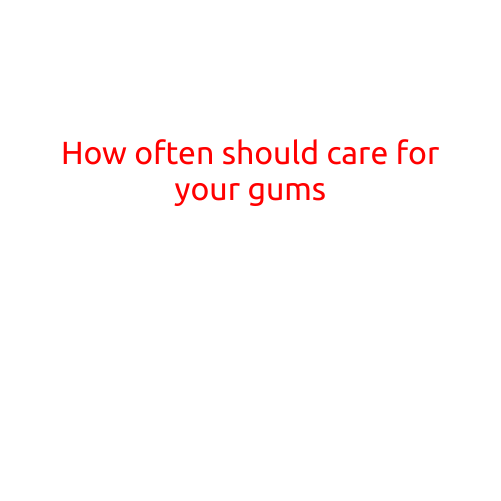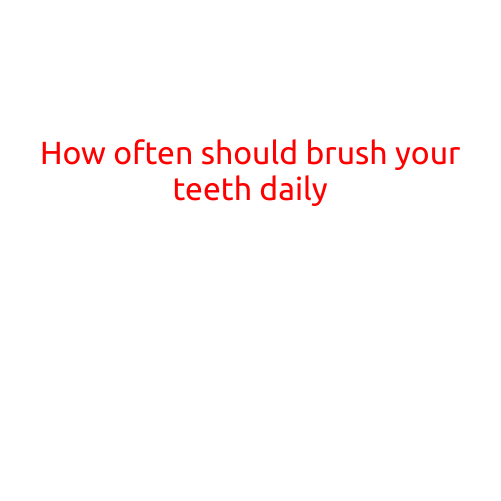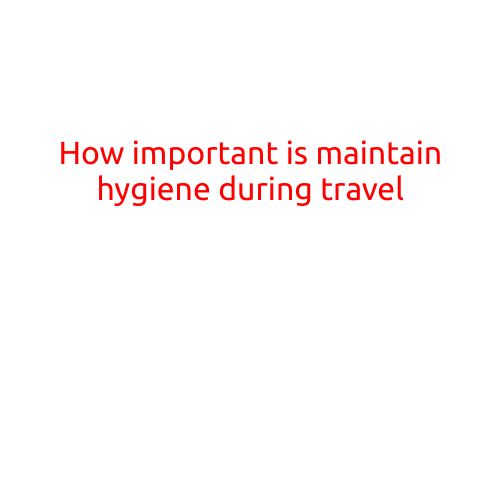
How Often Should You Care for Your Gums?
Caring for your gums is an essential part of maintaining good oral hygiene. Gum disease is a common condition that can lead to tooth loss, bad breath, and even increase the risk of heart disease and diabetes if left untreated. Regular gum care is crucial to prevent these problems and keep your teeth and mouth healthy. But how often should you care for your gums?
Why is Gum Care Important?
Gum disease, also known as periodontal disease, is a chronic infection that affects the gums and bone that support your teeth. Plaque, a sticky film of bacteria, builds up on your teeth and can cause inflammation and infection of the gums. If left untreated, gum disease can lead to tooth loss, bad breath, and even increase the risk of heart disease, stroke, and diabetes.
How Often to Care for Your Gums?
The American Dental Association recommends that you brush your teeth at least twice a day and floss once a day to prevent gum disease. Here’s a breakdown of how often you should care for your gums:
- Daily Brushing: Brush your teeth at least twice a day, in the morning and before bedtime, using a soft-bristled toothbrush and fluoride toothpaste. Pay special attention to the areas where your teeth and gums meet.
- Daily Flossing: Floss at least once a day to remove plaque and food particles from between your teeth and under your gumline.
- Professional Cleanings: Visit your dentist for a professional cleaning every 6 months to prevent plaque and tartar buildup. Your dentist may also use X-rays to check for signs of gum disease.
- Deep Cleanings: If you have gum disease, your dentist may recommend a deep cleaning, also known as scaling and root planing, to remove plaque and tartar from below the gumline.
Additional Tips for Gum Care
In addition to regular brushing, flossing, and professional cleanings, there are several other ways you can care for your gums:
- Monitor Your Gum Health: Keep an eye on your gum health by looking for signs of gum disease, such as red, swollen, or bleeding gums.
- Use an Anti-Plaque Mouthwash: Use an anti-plaque mouthwash to help kill bacteria and plaque in your mouth.
- Quit Smoking: Smoking is a major risk factor for gum disease, so quitting can help reduce your risk of gum disease.
- Eat a Healthy Diet: A healthy diet rich in fruits, vegetables, and whole grains can help keep your gums and teeth healthy.
Conclusion
Caring for your gums is an essential part of maintaining good oral hygiene. By brushing your teeth at least twice a day, flossing once a day, and visiting your dentist every 6 months, you can prevent gum disease and keep your teeth and mouth healthy. Additionally, monitoring your gum health, using an anti-plaque mouthwash, quitting smoking, and eating a healthy diet can all help reduce your risk of gum disease.





